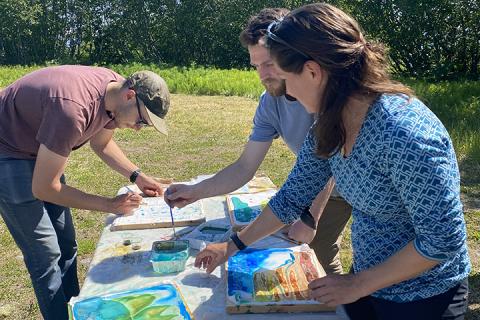Reciprocal Relationships in Reserves
Full Title
Reciprocal Relationships in Reserves: Establishing a Community of Practitioners for Identifying and Using Cultural Ecosystem Services Approaches
Background

Cultural ecosystem services (CES) are the non-material benefits that result from human relationships with the environment. They support and maintain place-based values, worldviews, cultural identity, and well-being. Including cultural ecosystem services in natural resource planning and decision-making is critical to successful long-term application of stewardship and management strategies.
Project Description
This project expands collaborations initiated during a 2020 project by training a cohort from at least seven reserves in a variety of place-based approaches for identifying and monitoring cultural ecosystem services. The project will establish a sustainable network of practitioners that can continue to support each other, engage others through their experiences, and share what methods are best suited for the different socio-ecological contexts represented by each reserve. Outcomes will help improve understanding of the different values, both tangible and intangible, provided by estuarine systems across diverse human communities.
Introduction to the Project
Project Period
October 2022 to September 2024
Resources
Project page at NERR Science Collaborative
Partners
- He‘eia Reserve (lead)
- Kachemak Bay Reserve
- Tijuana River Reserve
- Wells Reserve
Funding
$99,011 to He‘eia Reserve by the NERRS Science Collaborative

